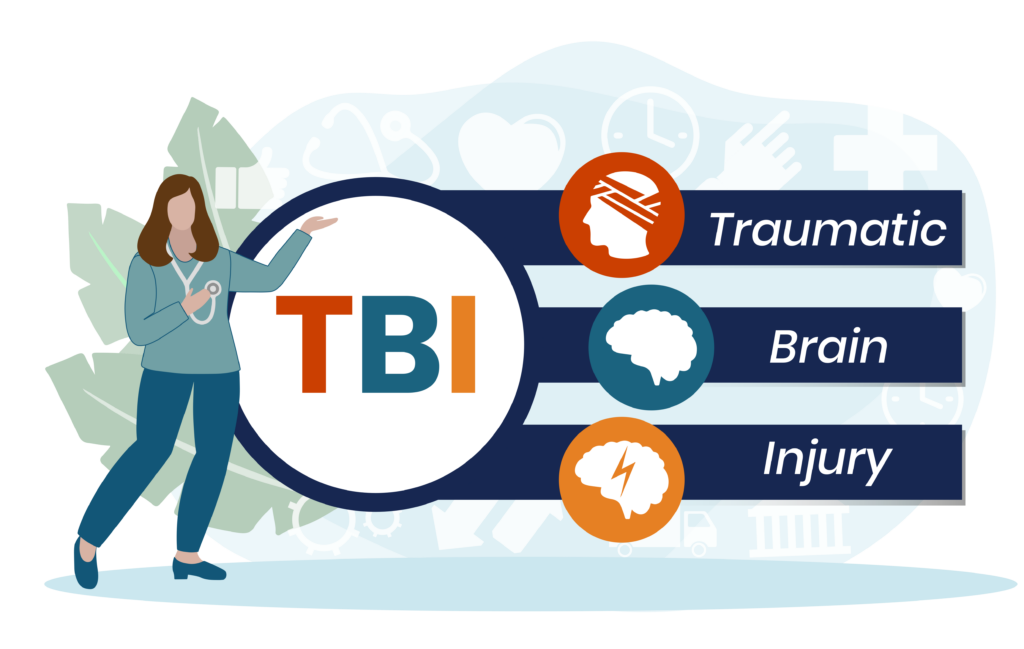Sean | June 6, 2024
Fighting the Insurance Company After a TBI

If you or a loved one has suffered a traumatic brain injury (TBI), you already know how life-changing it can be. The physical, emotional, and financial toll can be overwhelming. But what many TBI victims and their families don’t realize is that the fight for justice and fair compensation doesn’t end with the injury itself. In fact, it’s often just the beginning.
After a TBI, one of the most important steps you can take is to file an insurance claim to seek compensation for your injuries and related damages. However, always know that insurance companies are not on your side. Their main goal is to minimize their financial liability and protect their profits. This means you will likely need to fight the insurance company to get the full and fair compensation you deserve.
Experienced St. Petersburg TBI attorneys have seen firsthand how insurance companies try to take advantage of vulnerable TBI victims. They are well-versed in insurance companies’ common tactics and will fight back on your behalf.
What is a Traumatic Brain Injury?
A traumatic brain injury is a severe condition that occurs when a sudden external force, such as a blow or jolt to the head, causes damage to the brain. TBIs can include concussions, penetrating wounds, and other severe, life-threatening injuries.
TBIs can result from a variety of accidents, including:
- Motor vehicle accidents
- Falls
- Sports-related injuries
- Workplace accidents
- Assaults
The symptoms of a TBI can vary depending on the severity of the injury, but may include:
- Headaches
- Dizziness
- Nausea
- Fatigue
- Memory problems
- Changes in mood or behavior
- Difficulty concentrating
Common Causes of TBI
The most common causes of TBIs include:

- Motor vehicle accidents: Car crashes, motorcycle accidents, and pedestrian accidents are leading causes of TBIs.
- Falls: Falls are the leading cause of TBIs, especially among young children and older adults. Stairs, slippery surfaces, and inadequate safety precautions can all contribute to fall-related TBIs.
- Sports-related injuries: Contact sports such as football, hockey, and boxing pose a higher risk of TBIs. Additionally, recreational activities like cycling and skateboarding can also lead to TBIs if proper safety measures are not followed.
- Workplace accidents: Certain industries, such as construction or manufacturing, carry a higher risk of workplace-related TBIs. Falls from heights, being struck by falling objects, or being involved in a machinery accident are all potential causes of TBIs in the workplace.
- Assaults: Intentional acts of violence, such as physical assaults or gunshot wounds to the head, are also common causes of TBIs.
What Makes a TBI Serious?
TBIs can range in severity and symptoms, and the impact on a person’s life can vary accordingly. However, it’s important to remember that every TBI is serious and can have long-lasting effects on a person’s physical and cognitive abilities.
A concussion can result in symptoms such as headaches, dizziness, and confusion. While these symptoms may resolve over time, some individuals may experience persistent difficulties with memory, concentration, and emotional regulation.
Severe TBI can often cause significant physical and cognitive impairments. These impairments may require ongoing medical treatment, rehabilitation, and long-term care. In the most severe cases, a TBI can lead to permanent disability or even death.
Should I File a Personal Injury Claim if There are Pending Criminal Charges?
If you or a loved one have experienced a traumatic brain injury due to someone else’s negligence or intentional actions, you may be wondering if it is still possible to file a personal injury claim if there are pending criminal charges against the responsible party. The answer is that you absolutely should consider pursuing a personal injury claim, regardless of any ongoing criminal proceedings.
While criminal charges focus on punishing the wrongdoer for their actions, a personal injury claim is a civil matter that seeks to compensate the victim for their losses. You must understand that these two separate legal processes can be pursued simultaneously. Even if criminal charges are pending, you still have the right to seek compensation for medical expenses, lost income, pain and suffering, and other damages through a personal injury claim.
One of the main reasons you should file a personal injury claim is because it allows you to control your recovery. A successful personal injury claim can provide the financial resources to cover medical expenses, ongoing rehabilitative treatments, and necessary accommodations for a TBI. It can also help alleviate the financial burden caused by lost income and a reduced earning capacity. By pursuing a personal injury claim, you are taking proactive steps to secure your future well-being and ensure that you have the means to recover from your injury fully.
Another important consideration when deciding whether to file a personal injury claim is the standard of proof required. In criminal cases, the burden of proof is “beyond a reasonable doubt,” which can be difficult to meet. However, in a civil personal injury claim, the burden of proof is lower. It is typically based on a “preponderance of the evidence,” meaning that it is more likely than not that the defendant’s actions led to your injury. This means that even if criminal charges do not result in a conviction, you may still have a strong case for a personal injury claim.
Note that the outcome of a criminal case does not directly impact the result of a personal injury claim. The legal processes and considerations involved in criminal and civil cases are distinct. Seeking the guidance and representation of a knowledgeable TBI attorney will help you navigate both the criminal and civil legal processes and increase your chances of a successful outcome.
Potential Damages in a TBI Claim
Suppose you or a loved one has suffered a TBI due to someone else’s negligence or wrongdoing. In that case, you may be entitled to compensation for various damages. The potential damages in a TBI claim can include:
- Medical expenses: This includes the cost of hospitalization, surgeries, doctor visits, medications, rehabilitation, and any necessary assistive devices.
- Lost income: If the TBI prevents you from working or reduces your earning capacity, you can recover compensation for the income you have lost or will lose.
- Pain and suffering: TBIs can cause significant physical and emotional pain and suffering. Compensation for pain and suffering aims to provide financial relief for the non-economic damages you have endured.
- Loss of enjoyment of life: A TBI can limit your ability to engage in activities you once enjoyed. Compensation for loss of enjoyment of life seeks to compensate you for the negative impact of the TBI on your overall quality of life.
- Property damage: If the TBI was caused by a motor vehicle accident, you can recover compensation for damage to your vehicle or other property. If it was caused by a fall, you may be owed compensation for damaged jewelry, clothing, shoes, or eyeglasses.
- Wrongful death: In cases where a TBI results in death, the surviving family members can file a wrongful death claim to seek compensation for their losses, including funeral expenses and loss of financial support.
Why You Will Likely Need to Fight the Insurance Company After Suffering a TBI

It’s unfortunate, but the reality is that insurance companies are businesses, and their bottom line is profit. Insurance companies often employ tactics to devalue or deny valid TBI claims to protect their financial interests. Here are a few reasons why you will likely need to fight the insurance company after suffering a TBI:
- Denial of liability: Insurance companies may try to shift blame or argue that the TBI was not caused by the accident. They may downplay the severity of the accident or argue that your injuries are not as severe as you claim.
- Delay tactics: Insurance companies often use delay tactics to frustrate claimants and force them to accept lower settlement offers. They may request unnecessary documentation or repeatedly ask for additional information, dragging out the claims process.
- Undervaluing the claim: Insurance companies may try to undervalue your TBI claim by minimizing the extent of your injuries or disputing the need for specific medical treatments or ongoing care.
- Pressure to settle quickly: Insurance adjusters may pressure you to settle quickly before you fully understand the long-term consequences of your TBI. They may use aggressive tactics to push for a low settlement that does not adequately compensate you for your losses.
- Surveillance and social media monitoring: Insurance companies are known to hire private investigators to conduct surveillance on claimants. They may also monitor your social media accounts to try and find evidence that can be used against you in the claims process.
Tips for Fighting the Insurance Company
Fighting the insurance company after a TBI can be challenging, but it’s not impossible. Here are some tips to help you level the playing field and protect your rights:
- Seek immediate medical attention: Your health and well-being should be your top priority. Seek prompt medical attention after a TBI and follow your doctor’s recommended treatment plan. Document all medical evaluations, treatments, and prescriptions related to your TBI.
- Gather evidence: If possible, collect all relevant evidence, including accident reports, witness statements, medical records, and photographs of the accident scene. This evidence will help support your claim and strengthen your case against the insurance company.
- Consult an experienced TBI attorney: Hiring an experienced TBI attorney is imperative to your success in fighting the insurance company. A skilled attorney will protect your rights, take over evidence collection and preservation, guide you through the legal process, and fight for the full and fair compensation you deserve.
- Document everything: Keep a detailed record of all interactions with the insurance company, including phone calls, emails, and letters. Take notes of what was discussed, who you spoke with, and any promises or commitments made by the insurance company.
- Don’t sign anything without legal advice: Insurance companies may pressure you into signing a release or settlement offer. Before signing anything, consult your attorney to ensure you are not signing away your rights or accepting an unfair settlement.
- Follow your attorney’s guidance: Your attorney is your advocate and has your best interests in mind. Follow their guidance and advice throughout the claims process.
Why It’s in Your Best Interest to Hire an Experienced TBI Attorney
Hiring an experienced TBI attorney can make all the difference in the outcome of your case.
Here’s why it’s in your best interest to hire an experienced TBI attorney:

- Knowledge and experience: TBI attorneys have in-depth knowledge and experience handling TBI cases. They understand the ins and outs of medical evidence, insurance policies, and the laws surrounding TBI claims. This enables them to build a strong case on your behalf and negotiate the best possible outcome.
- Strong negotiation skills: Insurance companies employ skilled adjusters who aim to minimize their financial liability. An experienced TBI attorney knows insurance companies’ tactics and can negotiate aggressively on your behalf to secure a fair settlement.
- Access to resources and experts: TBI cases often require medical experts, accident reconstruction specialists, and other professionals to strengthen the case. A reputable TBI attorney has access to a network of experts who can provide invaluable support and testimony to bolster your claim.
- Focus on your recovery: Dealing with the physical and emotional aftermath of a TBI can be challenging enough. By hiring a TBI attorney, you can focus on your recovery and leave the legal challenges to a professional who will fight for your rights.
- Higher chances of success: Statistics consistently show that individuals who hire an attorney for personal injury cases receive higher settlement amounts than those who handle their claims independently. An experienced TBI attorney knows how to build a strong case and increase your chances of success.
Never Wait to Consult a Brain Injury Lawyer
If you or a loved one has suffered a TBI, don’t face the insurance company alone. Instead, schedule a free consultation with a skilled TBI lawyer. They are available and ready to fight for your rights and help you secure the full and fair compensation you deserve after suffering a TBI. Insurers might downplay or misunderstand your injury, but your personal injury attorney in St. Petersburg will take you seriously.


